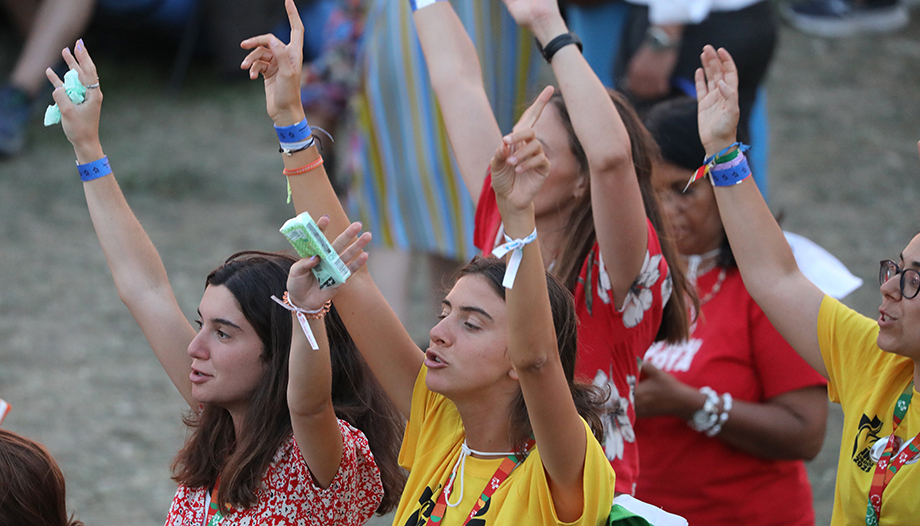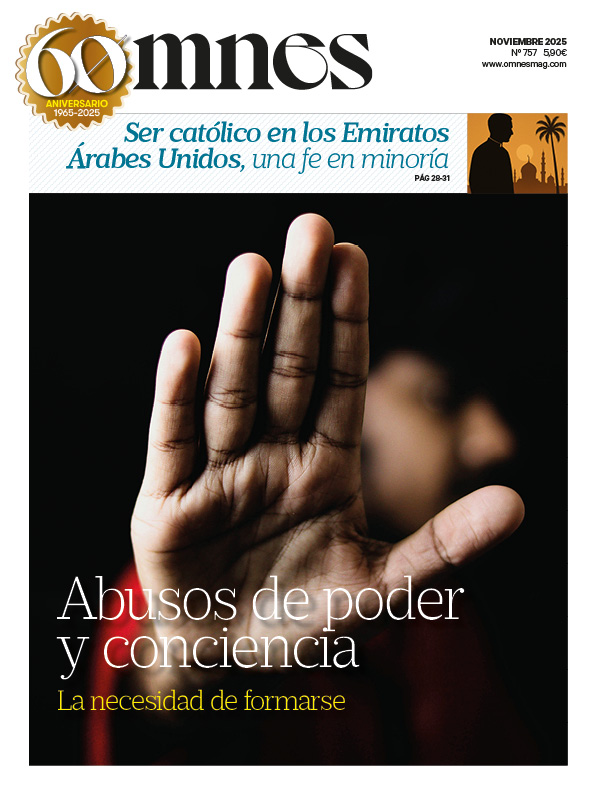In March, a symposium on the accompaniment of young people was held in Barcelona, organized by the Council of European Bishops' Conferences (CCEE). This meeting was attended by 275 experts from all over Europe in the areas related to the accompaniment of young people in the different Episcopal Conferences: youth, vocations, universities, teaching and catechesis. Along with the presentations of experts in accompaniment, there was an exchange of experiences of good practices of various European pastoral movements and initiatives present, as well as the testimony of young people.
I had the honor of participating in the inaugural session that took place in the Aula Magna of the Conciliar Seminary of Barcelona, together with the Archbishop of Valencia, Cardinal Antonio Cañizares and the Archbishop of Westminster, Cardinal Vincent Nichols. In my speech I welcomed all the participants to our city, recalling some words of Pope Francis, which framed the activity of this symposium: "Accompanying young people requires leaving one's own pre-made schemes, meeting them where they are, adapting to their times and rhythms; it also means taking them seriously in their difficulty to decipher the reality in which they live and to transform an announcement received in gestures and words, in the daily effort to build one's own history and in the more or less conscious search for a meaning for their lives.".
With regard to this accompaniment of young people, Cardinal Rino Fisichella, president of the Pontifical Council for the New Evangelization, gave a beautiful reflection entitled Evangelization and good practices of accompaniment. In his speech he pointed out that "To accompany means to lead the person into the depths of his or her existence, to discover the presence of a call to truth, the key to the realization of freedom, which allows us to go beyond ourselves in order to trust fully in the mysterious plan of God that gives meaning and significance to life. Vocations are not based on the qualities that one possesses, but rather the opposite can be said: the correspondence to a vocation consists in giving value and support to all that one already is. Helping to discover the primacy of God in our life and the power of his grace are the instrument through which we can consciously contribute to directing our own existence"..
These days of work were accompanied by moments of intense prayer, which reached their culmination in the Eucharist celebrated at the Sagrada Familia on Thursday, March 30, presided over by Cardinal Angelo Bagnasco, president of the CCEE. Previously, experts in the work of Antoni Gaudí, the sculptor Etsuro Sotoo and the theologian Armand Puig, introduced those present to the path of beauty for the evangelization of young people, and gave a guided tour of the Sagrada Familia.
Another memorable moment that I would like to highlight was the fair of good practices in the field of evangelization and accompaniment of young people. This was a wonderful opportunity, which allowed a rich exchange of proposals and suggestions through an exhibition of various initiatives carried out in Europe by different youth movements, religious congregations and dioceses. These initiatives were selected with a view to their application in the European socio-cultural context.
Finally, I would like to share with you and make my own the words that Cardinal Angelo Bagnasco pronounced in the concluding session of the symposium and that, I believe, summarize well the work done. The Cardinal referred to the figure of the educator in today's context, characterized by "the culture of nothingness". The Christian educator must above all raise his gaze to Christ, the true and only teacher. While contemporary culture seems to "have nothing to say to young people, nothing meaningful that will enliven their hearts and fulfill their existence."However, in the person of Jesus "all human virtues shine forth in an eminent way, the full humanity of man shines forth, that humanity which our age risks not recognizing and reducing the person to a liquid state".
Let us look at the younger generation with great sympathy and confidence: "It will be up to them to be the new evangelizers, convinced that evangelizing today means teaching people the art of living! Ours is a particularly arduous time; it is the hour that Providence has given us, which we embrace with trust and love.
Finally, I would like to take this opportunity offered by Palabra magazine to thank the organizers and participants for their work. I trust that together we have contributed to finding ways to help revitalize youth and vocation ministry in our Church with an eye to the upcoming Synod of Bishops dedicated to young people, faith and vocational discernment convened by Pope Francis for October 2018.
Archbishop of Barcelona








